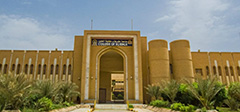Abstract
Cement is considered a base material in preparing blending mixtures that applying in various projects in the civil engineering field. Nevertheless, the cement production process cause indubitable negative environmental influences such as emitting CO2. The production of cement produces around 7% of the global CO2 emissions. Thus, searching for alternate binders in building processes to minimise or substitute cement has been one of the social problems. A by-product or waste products are among the potential alternatives to the mentioned problem. The present investigation involves the consumption of paper sludge ash (PSA) waste as cement replacement to produce environmentally friendly, cementitious material. Limited studies were addressed the PSA grinding time impact on mortar or concrete properties. Moreover, limited studies replaced the cement with high volume of PSA. Therefore, during this study, the effect of grinding time and replacement level (up to 50%) of the PSA on the surface electrical resistivity and compressive strength of mortar were investigated. Three grinding periods (in addition to without grinding), two replacement levels and three testing ages were considered. The results indicated that grinding the PSA for 10 minutes and use it to replace up to 50% of the cement content have similar mechanical and durability performance to ordinary Portland cement after 28 curing days. This innovative binder will also cause a major difference in decreasing the building materials cost and CO2 emissions.
Recommended Citation
Shubbar, Ali A.; Sadique, Monower; Nasr, Mohammed S.; Al-Khafaji, Zainab S.; and Hashim, Khalid S.
(2020)
"The impact of grinding time on properties of cement mortar incorporated high volume waste paper sludge ash,"
Karbala International Journal of Modern Science: Vol. 6
:
Iss.
4
, Article 7.
Available at:
https://doi.org/10.33640/2405-609X.2149
Creative Commons License

This work is licensed under a Creative Commons Attribution-Noncommercial-No Derivative Works 4.0 License.




